#gouverneur morris
Explore tagged Tumblr posts
Text


Too many old stuffs lol dk which to post everyday
tagging these names makes me sick
#amrev#amrev fandom#thomas jefferson#james monroe#james madison#martin van buren#andrew jackson#john quincy adams#daniel webster#john c. calhoun#henry clay#alexander hamilton#aaron burr#john marshall#john jay#gouverneur morris#robert r. Livingston#patrick henry#george washington#john adams
174 notes
·
View notes
Text
Welcome to my casting for the very serious, extremely scholarly, entirely unfounded, never once requested: Himbo-fication of the America Revolution TV Series that HBO should make asap.
Now, I think we’d all acknowledge there are some founding fathers we just can’t redeem or prettify, I’ve got opinions on them too, and their wives as well and much more, but for our current cause: I present what one might call: Founding Lads. Not all of them. Just the ones I’ve got weirdly settled opinions on. If anyone wants the whole script for this endeavor, it’s been rotting under my bed for seven years. By the time I get it produced these young actors will all be dead, but that’s that and not pertinent to the art of historical Himbo-fication



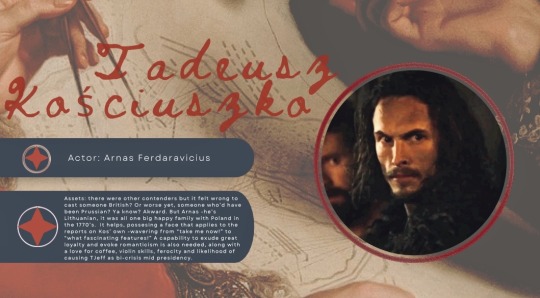
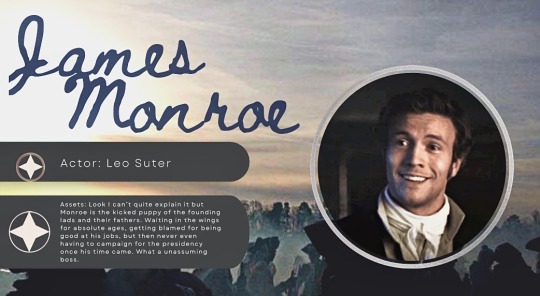
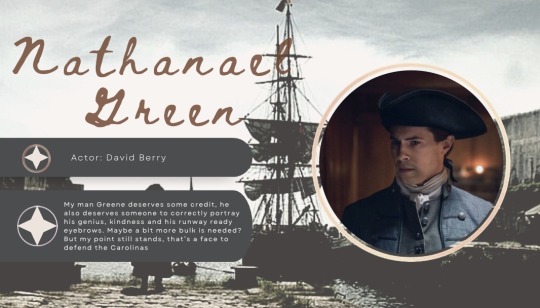
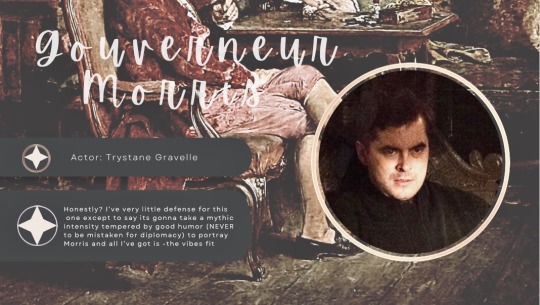
Now for this last one, I have neither a compelling argument nor a graphic, I simply ask you to imagine this amount of sass playing whichever favorite headache of George Washington’s staff that you prefer. My vote goes to Tallmadge.

#american revolution#amrev#amrev fandom#amrev history#amrev art#turn: washington's spies#turn fanfiction#turn amc#turn#john laurens#Tadeusz Kościuszko#Thaddeus kosciuszko#alexander hamilton#Hamilton#marquis de lafayette#lafayette#gouverneur morris#Nathanael greene#henry laurens#historical lams#lams#arnas fedaravicius#matthew beard#Tristan gravelle#David Barry#James Monroe#thomas jefferson#leo suter#benjamin tallmadge#anthony boyle
121 notes
·
View notes
Text
Philadelphia May 17th 1780 Dear Sir, I embrace the earliest & best opportunity of acknowledging the receipt of yours, dated, Wilmington 21st April, & need not, I trust, express how much I join with you in anxious expectation of hearing the fate of our Capital, & the brave men within it. I am, however, not without my hopes, & am convinced, that if Sir Henry has not succeeded before this time, he never will. The Garrison & inhabitants of New York have been thrown into the greatest confusion by news received from Europe, repeated councils of war have been held, repeated expresses sent off to Clinton, & the citizens, as well as the military, are called out to fatigue duty; they are erecting works between the two rivers, and a battery at the lookout on Staten Island, whilst a number of vessels have been prepared, & are ready to be sunk, with a view of obstructing the entrance of the harbor. These facts, joined to the information we have received from Europe, lend us to expect the appearance of a friendly force. I thought it of the greatest consequence that our friends in Carolina should be immediately made acquainted with our expectations in this matter, as it may be attended with no small influence upon their councils. As my Colleague Matthews is on a committee at Camp, I am deprived of his advice with respect to that part of your letter, which hints the expediency of transmitting to Mr. Adams, a similar commission, to that which you now hold, but have thought it best upon reflection not to say mention any thing about the matter, answering in general terms to all enquiries, that you were at Wilmington, & waiting for a safe opportunity to embark. Should we be so unfortunate as to lose Charles Town, it will not then be too late to transmit a commission to Mr. Adams, but should our enemies be disappointed, you will in that case, I flatter myself, my dear Sir, be prevailed upon to make the attempt, & may do it with a far greater prospect of success, if not embarrassed with the interference of another Person._ We have had quires of paper from our Ministers abroad, but they contain little else but extracts from French & English Newspapers, except on one head which I have alluded to in the other page of this letter, & which prudence forbids my discussing on paper._ Should any thing material take place, I should esteem it a particular favor to hear from you, & will endeavor to deserve it, by giving every degree of information from this quarter. I am, dear Sir, With the greatest respect & esteem, Your most obdnt & hum. Servant, F. Kinloch. The Marquis de la Fayette is arrived, & has, I believe, some information to communicate. Governor Morris had the misfortune, to be thrown out of his Phaeton the other day, & has lost his leg by amputation. I enclose the last Newspapers, which I beg you would be so kind as to forward to the Governor.
Francis Kinloch to Henry Laurens, in a letter dated May 17, 1780. Transcribed from the copy held at the Huntington Library.
This is a fairly short letter, but there's so much going on!
Francis and Henry directly interacted several times throughout their lives, but this may be the only surviving letter between the two.
"acknowledging the receipt of yours, dated, Wilmington 21st April" - Letter not found. Henry Laurens was in Wilmington, NC at this time and was looking to secure passage to the Netherlands.
"I join with you in anxious expectation of hearing the fate of our Capital, & the brave men within it. I am, however, not without my hopes, & am convinced, that if Sir Henry has not succeeded before this time, he never will." - Kinloch was referring to Sir Henry Clinton's siege on Charleston, SC, which lasted for three months. Despite Kinloch's optimism, General Benjamin Lincoln had already surrendered to the British on May 12, 1780. Kinloch was serving on the Continental Congress in Philadelphia at the time, so the news had not yet reached him.
"These facts, joined to the information we have received from Europe, lend us to expect the appearance of a friendly force." - This and other references to news from Europe are likely a reference to reinforcements arriving from France. The comte de Rochambeau and 5,500 men set sail for America in May 1780.
"which hints the expediency of transmitting to Mr. Adams, a similar commission, to that which you now hold" - In the fall of 1779, Congress had named Henry Laurens as minister to the Netherlands in hopes of securing a treaty and a loan with the country. Henry would never make it to the Netherlands - his ship was intercepted by a British frigate, and he was imprisoned in the Tower of London. John Adams later served as envoy to the Netherlands during 1780-1782.
"The Marquis de la Fayette is arrived, & has, I believe, some information to communicate." - A Lafayette mention! Lafayette had recently traveled to France to secure additional aid for the American cause, and he recently returned to America with news of the impending support.
"Governor Morris had the misfortune, to be thrown out of his Phaeton the other day, & has lost his leg by amputation." - An iconic story. I did not have "Francis Kinloch writes to Henry Laurens about Gouverneur Morris's amputated leg" on my 1780 bingo card, yet here we are.
#Shout out to Hector at the library for responding so quickly and just sending me scans of the letter for free - you're a real one#Francis Kinloch#Henry Laurens#Marquis de Lafayette#John Adams#Gouverneur Morris#Henry Clinton#Benjamin Lincoln#Comte de Rochambeau#quote#I'm sad there's no John Laurens mention :/
18 notes
·
View notes
Note
Hello, recently you answered an ask about how Hamilton reacted to the Hamilton-Madison fallout, and one of the things you said was "These men were very crucial figures in American law, which shows that, unlike men like Jefferson, he [Hamilton] was very selective in who he chose to associate with when it came to his work."
Was Jefferson particularly indiscriminate when it came to finding collaborators, or was Hamilton particularly selective (or a little bit of both)? Could you provide some examples for this contrast?
hello first of all, the structure of your ask had me literally salivating screaming crying on the floor because this is such a wonderfully structured ask and it is the perfect formula to get an in depth response bc there’s so much i could talk about here. i love you. anyway-
Let's break this down to each dude. First, the worst dude, Thomas "freak" Jefferson. Jefferson's political career began when he joined the House of Burgesses, which, as the name implies, is a house of Burges (its a legislature). His first major publication was A Summary View of the Rights of British America, a Revolutionary work of literature that called King George III a cunt in formal language, was done entirely by himself, and it was rejected by his contemporaries for being too radical. This gained him a reputation for being a blue haired liberal.
Source: The American Heritage Book of the Presidents and Famous Americans (book 2)
Jefferson would go on to write The Causes and Necessity of Taking up Arms with John Dickinson in July, 1775 to, yk, explain the causes and necessity of taking up arms against the British. John Dickinson was a very well known politician, being a member of the Continental Congress and one of the elite group of Americans who had the chance to be educated in England. Both Jefferson and Dickinson were known revolutionary voices, despite the differences of opinion that would arise between them in the following debate on independence. They were also both members of the Second Continental Congress.
Source: American Battlefield Trust, Delaware Historical and Cultural Affairs
The question of why Jefferson worked with Dickinson is most relevant to this ask. And the answer, in my opinion, is just because it was convenient. The Continental Congress was the best- "best"- men of each state coming together to represent their respective homelands. Dickinson and Jefferson most likely had conversations about the subject they would go on to write about, and decided to write it down and publish it for public benefit. We'll come back to this later.
Okay, now the elephant in the room: the Declaration of Independence. I find this subject so boring so bear with me. Jefferson was chosen by the Declaration committee (consisting of John Adams, Benjamin Franklin, Thomas Jefferson, Robert Livingston, and Roger Sherman) as he was already known as a Revolutionary writer and one of the best educated of them. He wrote the original draft on his own- well, technically- and then it was edited by the rest of the committee, and then by the rest of Congress.
Oh, but Henry! You said technically! Why? Well, dear reader, I'll tell you, be patient, jesus fucking christ. Jefferson highly based the Declaration off of Richard Henry Lee's resolution calling for independence in the Continental Congress, but mainly off of the philosophies of John Locke. That famous phrase we all know was almost word-for-word the writings of John Locke. I even once wrote an essay on how Jefferson essentially plagiarized John Locke in my sophomore government class.
"We hold these Truths to be self-evident, that all Men are created equal, that they are endowed by their Creator with certain unalienable Rights, that among these are Life, Liberty, and the Pursuit of Happiness..." -Thomas Jefferson, Declaration of Independence, July 4, 1776
Source: my pocket Declaration/Constitution LMAO i really busted that out like an absolute nerd
"All mankind... being all equal and independent, no one ought to harm another in his life, health, liberty or possessions." -John Locke, Second Treatise on Government, 1690
Source: brainyquote.com and a suspicious PDF of excerpts that I narrowly avoided a virus while accidentally downloading
I think that the Declaration is a pretty good example of how Jefferson, and 18th century American government, usually performed. This famous document was created by committee, and through education on 17th century philosophy. There were not multiple men working on the original draft of this, and the men who did work on it were not selected by Jefferson, and his major works are almost entirely attributed to him alone. He'd go onto write other historical documents such as Notes on Virginia and Anas (which are a more interesting and complex document) in this same form.
Source: Alexander Hamilton by Ron Chernow, Founders Online
He did consult with other men when it came to information and intelligence on political enemies later in his political career. These men were mostly hyper-relevant Democratic Republicans, who tended to be rich, southern landowners (aka slaveholders), at least those who associated with Jefferson. The most iconic of these were, of course, James Madison and James Monroe. Jefferson frequently consulted them, and Monroe (allegedly) gave Jefferson copies of the documents Hamilton showed to him to prove he had not been speculating with James Reynolds, but had actually been sleeping with his wife.
Source: Alexander Hamilton by Ron Chernow, The Three Lives of James Madison by Noah Feldman
To summarize, Jefferson was not necessarily indiscriminate with who he associated with, and he didn't even really work that much with other men on his major writings. However, we can see a definitive pattern of Jefferson only really associating with other members of his class, neither below or above him. And this just very simply makes sense. Jefferson, as did the rest of the 18th century, believed that there shouldn't be any cross contamination between the social classes. He also believed that the only really smart people were in his class. And he wasn't aggressive about this, it's just a passive belief due to the way society was structured.
UNTIL!
Alexander Hamilton was literally opposite to Jefferson in every sociocultural way. In Jefferson's eyes he was an ambitious upstart who rose through the ranks, defying the social order that kept society from collapsing.
You'll hear a lot of people say that in forming America, the Founding Fathers had undone this rigid social class system, but that really isn't true. The class system in Europe was entirely different than the one that developed in America, but it still definitely existed in some form. Without the court system, America formed a loose sort of aristocracy that depended on land ownership and/or success in the mercantile business. In Europe, you'd see members of the clergy having their own class, but in America, it was entirely based on wealth, and less on birthright, but if your parents were not wealthy, the only way you could become wealthy was by getting in on some kind of get-rich-quick scheme, like owning a plantation or being a lawyer.
What made Hamilton different from this was that Jefferson, and other enemies, could literally watch in real time as he rose through the ranks. He could see him go from a captain in the artillery, known for his bravery in the New York campaign (someone who would eventually be forgotten), to Washington's aide-de-camp (okay... but he'll probably still fade into obscurity), to a member of the Confederation Congress (oh! well, okay, but that doesn't particularly mean anything, this is probably the highest he'll get), to the only New York delegate in town for the Constitutional Convention and the only person from New York to sign it (well that'll get him in the history books...), to the FIRST SECRETARY OF THE TREASURY OF THE NEW US GOVERNMENT (WHAT THE FUCK HOW DID HE FUCKING DO THAT WHAT THE FUCK GET HIM OUT).
Source: Alexander Hamilton by Ron Chernow
So, let's talk about Hamilton's political career now, specifically through tracking his writings.
One thing the musical gets right is that Hamilton DEFINITELY utilized anonymous pamphlet publishing throughout his political career. And these are some of my favorite documents ever. From A Farmer Refuted to The Monitor to The Publius Letters to Pacificus, Hamilton absolute served irreparable cunt in all of these writings, and there are more than what I've listed, I just haven't finished my chronological list of Hamilton's published works.
"I'll use the press, / I'll write under a pseudonym, you'll see what I can do to him [Jefferson]." -Alexander Hamilton in Hamilton by Lin Manuel Miranda
Source: Blumenthal Performing Arts
All of these anonymous publishings had some things in common that I've used to categorize them:
A target (usually a person he didn't like and thought was immoral)
A core lesson (typically a political stance he was taking at the time that he wanted to defend and garner support for publically)
A newspaper publisher that was symbolic or strategically important in some way (either an enemy newspaper, and up-and-coming newspaper, an old friend's newspaper, etc.)
multiple editions
2-3 coauthors/beta readers
Almost each one of these publications follows this pattern, though number 5 tends to be the least common among all of them. But, since his college days, Hamilton would ask for his friends' input on his writings (whether or not he accepted their advice is not confirmed). Before he would give his college-era speeches, he would consult with the small debate group he and his friends made before he gave those speeches. When he was writing The Publius Letters, he most likely consulted with his lover, John Laurens, on the subject matter, as Laurens had close connections with congress, and the target (number 1 on the above list) was Samuel Chase, a congressman who had basically scammed soldiers out of food, causing many to starve for a prolonged period.
Source: Alexander Hamilton by Ron Chernow, John Laurens and the American Revolution by Gregory D. Massey
Like Jefferson, Hamilton had his magnum opus, and the influence of others played a major role in defining the document. Hamilton would ask other men, including William Duer, and Gouverneur Morris to write this document, but ultimately settled on John Jay and James Madison. This was, of course, The Federalist.
William Duer was related to Hamilton by marriage, as they married a set of cousins. Duer was educated in England and worked for the East India Company, which gave him a very good resume to be one of Hamilton's coauthors. However, the two submissions Duer made for The Federalist were rejected. Gouverneur Morris was a blue-blooded politician who gave the most speeches at the Constitutional Convention, a whopping 173. He spoke multiple languages and had been educated at King's College, which is now the ivy league Columbia. Morris was too busy to contribute to the project.
John Jay was the first coauthor selected. He had been the main draftsman of the New York State Constitution, a negotiator of the Treaty of Paris (1783), and was another alumni of King's College. He later became the first chief justice of the United States Supreme Court, and negotiate a treaty with Great Britain. Hamilton often called on him in regards to political matters, and the two were close, lifelong allies. Jay only wrote five of the 85 Federalist essays, because he was hit in the head with a fucking brick during the Cadaver Riots.
Source: Alexander Hamilton by Ron Chernow
The other principal author of The Federalist was James Madison. James Madison, in my opinion, was the most qualified to write The Federalist, despite his later delusions about the Constitution (which were largely the result of Jefferson's influence on his opinion but that's neither here nor there). James Madison was educated at what was considered the greatest educational institute in 18th century America: Princeton (then called the College of New Jersey). Madison was the reason Hamilton wasn't able to take an expedited course to his degree, because Madison had attempted to finish his four year education in two years, and had a nervous breakdown... fun fact...
But, still, he got his law degree from Princeton, and was in several legislatures, including the Virginia Governor's council where he met Jefferson. And of course, he was the author of the Virginia Plan, which was the foundation of the US Constitution of 1787. His notes on the Constitutional Convention are the most complete set of notes, and he was there every fucking day. So yeah, James Madison knew the Constitution pretty well, even if he eventually cared too much about states' rights to recognize what was blatantly written in the Constitution, and maintained that viewpoint until his presidency.
Source: Alexander Hamilton by Ron Chernow, The Three Lives of James Madison by Noah Feldman
The Federalist was not as evenly divided between the authors as Hamilton intended, since he could not shut the fuck up, but that's not the point. The point is that the men he sought to be his coauthors had several things in common: they attended prestigious educational institutions and had long histories of Revolutionary work. Reading of these men's person histories reads like you're going through a company's qualifications for their employees. Because it almost was except they weren't getting paid. Hamilton sought out these men based on their qualifications, and, as you can see by William Duer's rejected submissions, he had a high standard that they had to fit for him to affix his name next to theirs (which he didn't do until the weeks leading up to his death because he knew he was gonna die but that's a topic for another time).
I KNOW THIS IS LONG BUT IM STILL FUCKING GOING BECAUSE THIS IS WHAT HAPPENS WHEN YOU GIVE ME THE CHANCE TO ANSWER COMPLEX QUESTIONS ABOUT HISTORY INSTEAD OF THE SAME FOUR SHIT SUBJECTS THAT EVERY HISTORIAN COVERS IN THEIR BOOKS THANK YOU OKAY
This pattern of finding qualified contributors to his works continued throughout his life. Now, idk if you know this, but Hamilton was actually planning another The Federalist-style publication right before his death and i am LITERALLY SO EXCITED TO TALK ABOUT THIS
Hamilton told his visiting friend James Kent that he wanted to look through all of history and analyze government and the various forms it took throughout all of written history. Mirroring The Federalist, he intended to invite six to eight authors, including John Jay, Gouverneur Morris, Rufus King, John M. Mason, and James Kent. He thought that each of these men would write about the subjects in which they specialized (Kent on law, Mason on theological history, etc.) Hamilton would be in charge of writing a synthesis on the previous volumes.
"The conclusions to be drawn from these historical reviews he intended to reserve for his own task and this is the imperfect scheme which then occupied his thoughts." -Chancellor James Kent
Source: Alexander Hamilton by Ron Chernow
As you can imagine, these additional dudes followed the pattern shown above for Hamilton's qualifications for his coauthors, especially for a project this big. I mean, if this could have happened, it would have been literally incredible. I did the calculations, and it would have taken Hamilton five years after 1804 to get rid of all of his debts. If he had lived for that length of time, he could have started on this project, and alleviated the debts that later plagued his family. But that ties into my other theories on Hamilton's death, and that is just too weighty of a subject to get into in a post that's already this long.
To wrap this all up, the conclusion we can draw here is really just related to the class differences between Hamilton and Jefferson. Alexander Hamilton was not bound by a lack of social mobility in the 18th century, since he completely decimated that concept by his existence, which allowed him to view his co-contributors more objectively and more selectively. He handpicked those who he worked closely with based on their qualifications and their experience. His categorization of their abilities in that last example shows that he specifically sought them to speak on subjects they were most acquainted with.
Jefferson, on the other hand, didn't have that kind of social mobility, nor did he desire it. Jefferson stuck with his peers, who were mostly all lawyers of the same religion and political beliefs. While I'm not saying Hamilton was going around and writing alongside Democratic Republicans, he certainly didn't pick those he worked with based on like-mindedness or status. He chose them entirely on the basis of their revolutionary resumes, and that is really the difference we see in these two men's respective political careers. Was that the reason Jefferson was president and Hamilton wasn't? Definitely not. Was that the reason they didn't get along? Well, it certainly didn't make them like each other. Does it make Hamilton smarter? No, surprisingly. Do I like Hamilton more because of this? No comment.
I know this is lengthy, but I've literally been brewing up historical theory in my head for the past six months without having any outlet for it besides ranting at my parents and scribbling in the margins of Alexander Hamilton by Ron Chernow (as you can tell by my sources). I genuinely cannot say how much I appreciate this kind of question, because it not only gets me thinking, but it allows me to remember why I got into history in the first place, and why I want to spend the rest of my life educating people on the wonderous world of pussy politics between middle aged men that are so decomposed, the matter that made up their bald ass heads is probably in your drinking water (have fun thinking about that). Anyways, thank you for the ask and I hope you got enough examples :3
#alexander hamilton#john laurens#history#amrev#thomas jefferson#american history#founding fathers#gouverneur morris#james madison#john jay#james kent#early 19th century#18th century#1790s#hamilton#long post#asks#i have spent. four and a half hours on this post SJFKHS#could be more actually#this is why i need a podcast#this is the kind of thing that would be an hour long discussion rather than a tumblr post#that was fun#...what do i do with my life now#publius originals
60 notes
·
View notes
Text
tumblr boop but it's hamilton daring gouverneur morris to boop george washington repeatedly for an hour straight until he gets blocked and reported.
#me desperately connecting my niche facts to contemporary events#love this story sm actually#imagine slapping washington on the back for a meal#i choose to believe it happened#alexander hamilton#gouverneur morris#george washington#meme#boop#boop o meter
33 notes
·
View notes
Text
We shouldn't just slut shame Alexander Hamilton. We should also slut shame Aaron Burr, Benjamin Franklin, and Gouverneur Morris.
63 notes
·
View notes
Text
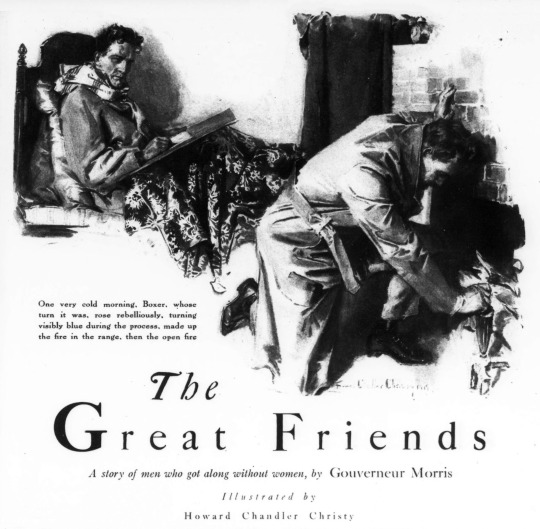
Originally published in the January 1920 issue of Cosmopolitan magazine.
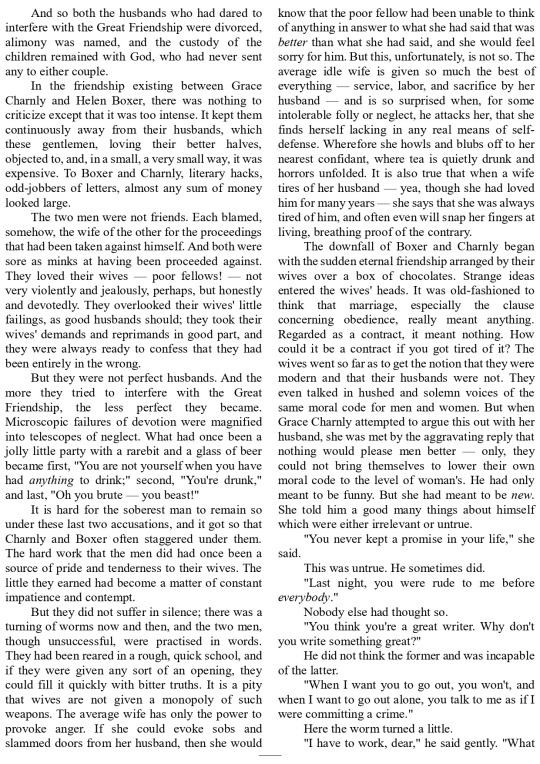
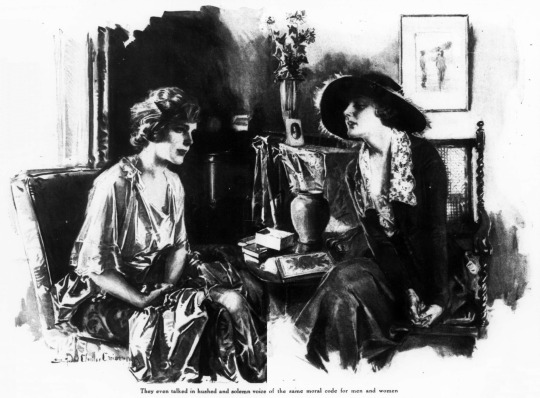
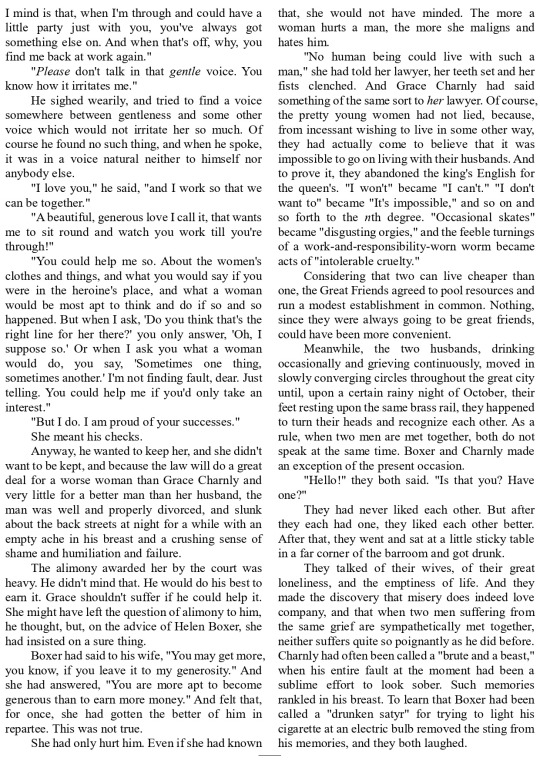
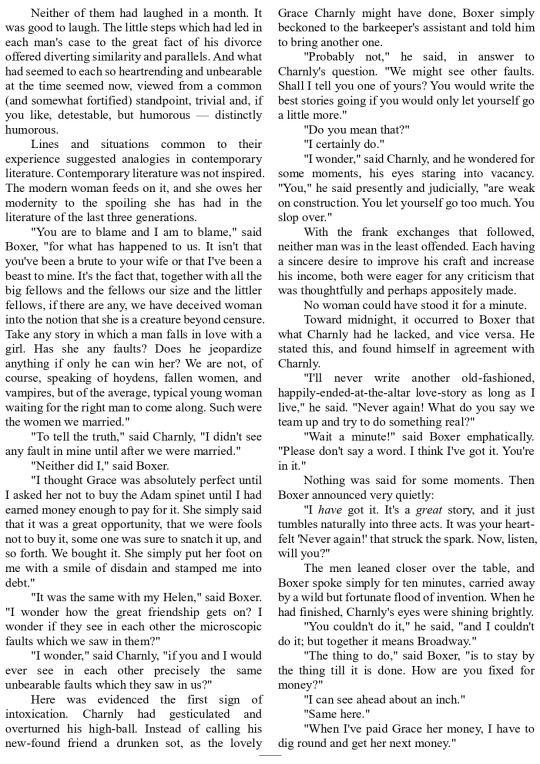
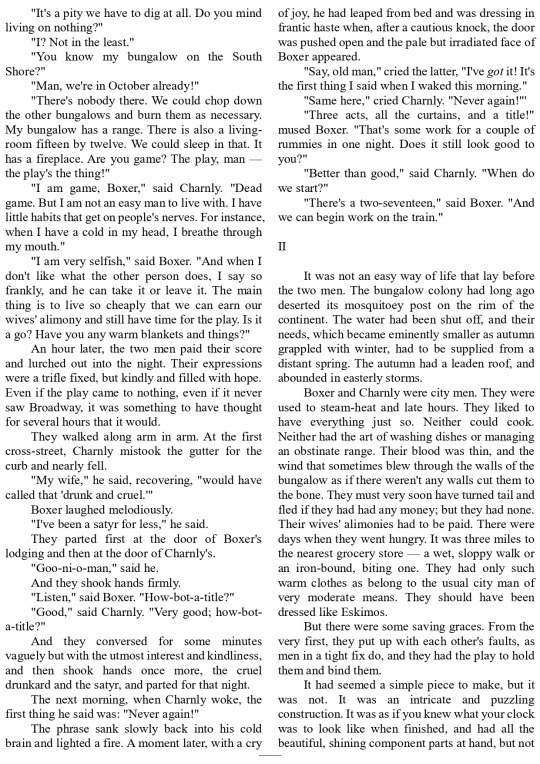
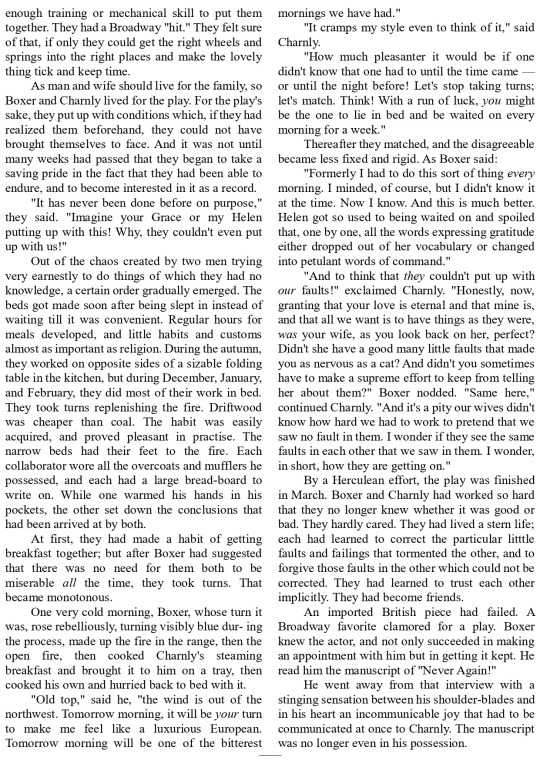
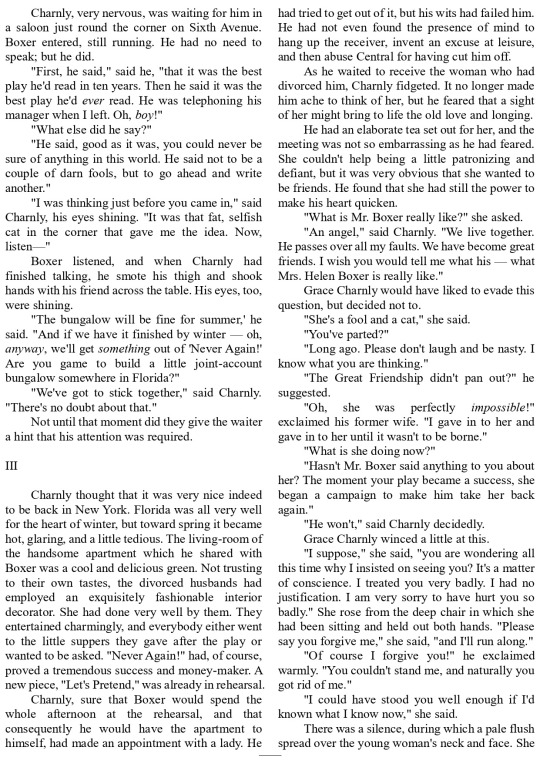
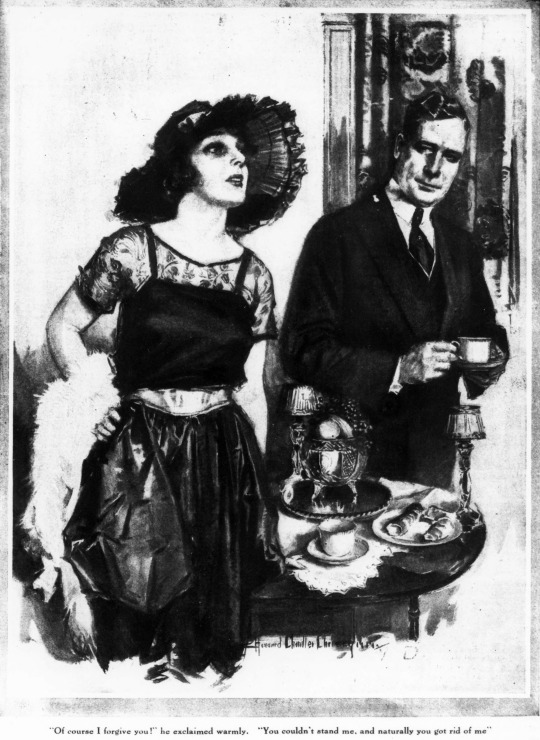
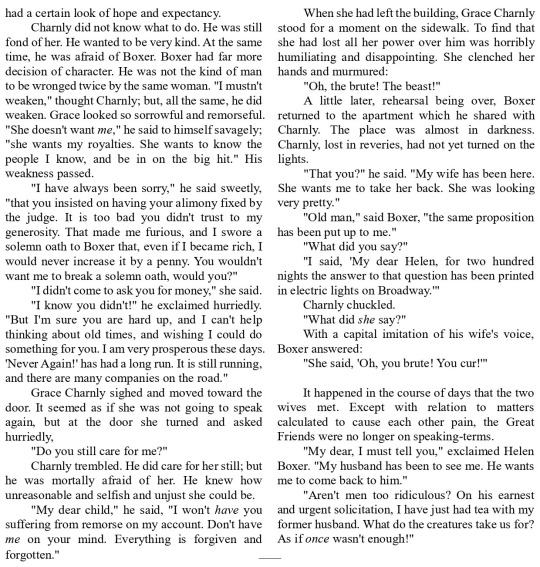
#misogynistic bi men vs gold digger lesbians#dated and definitely not highbrow#but i enjoyed it#gouverneur morris#howard chandler christy#short story#gay literature#lgbt literature#lgbtq literature#literature#lit#mlm#gay#lgbt#lgbtq#lgbtqia#cosmopolitan#1920s
17 notes
·
View notes
Text

Based on @aaronburrssexdungeon 's fic, Religious Duty........
#im sorry if you Didn’t want to be @ded#this is so poorly madewjjwjwjsj#this is my first time drawing these to#anyways average thing i see in the midwest#gouverneur morris#robert troup
19 notes
·
View notes
Text
I can't believe that one of the American founding fathers was named Gouverneur Morris
Imagine being named “Governor” lmao that's like that The Amazing World of Gumball episode where you find out Nicole first name is Doctor
#also the bar is a little bit high#Gouverneur Morris#amrev#amrev history#history#american revolution#haha funny
22 notes
·
View notes
Text

Thank u @kiliane who sent me the idea & reference and I immediately did this😭😭😭 this is so funny..
It’s been a long time since I draw these New Yorker boys () I somehow wanted to draw them again in dgrp au style
62 notes
·
View notes
Text

Good Housekeeping 1936-02
Cover art by Horace Gaffron
#good housekeeping#vintage#vintage magazine#magazine cover#February#20th century#1930s#1936#Gouverneur Morris#Horace Gaffron#internet archive
2 notes
·
View notes
Text
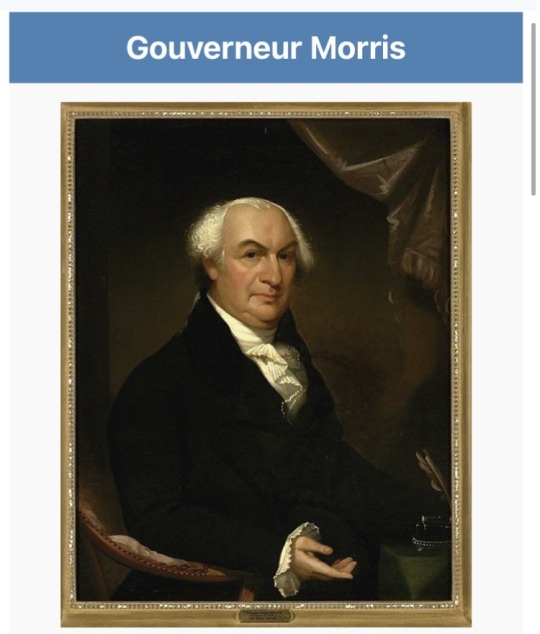

French wiki made me realize Gouverneur’s weird first name that sounds like a last name is because it’s just his mother’s last name lol
#Darcy also has his mother’s maiden name as his given#so i guess that was a thing with the Georgian anglosphere#it’s a cool way to name your kids I like it#gouverneur morris#amrev
8 notes
·
View notes
Note
if I could go back in time I would IMMEDIATELY go straight to callender with the wildest rumours. burr and Hamilton fucked but burr gave him ghonorrea and that's why they hate each other now. Hamilton and Madison used to date but now Madison got married in a Molly house to Jefferson and that's why he has a room for him in Monticello. extra extra ex-revolutionary war soldiers admit to participating in sodomitical orgies with Washington and his war family. Von Steuben fucked Martha Washington while George watched. Abigail uses an artificial penis to fuck Adams that's why he acts like he has a stick up his ass, he actually does. John Hancock has an 11 inch dick but he's super chill and humble about it actually.
it was John Marshall had 11 inch people thot Gouverneur Morris but was just wood leg
3 notes
·
View notes
Text
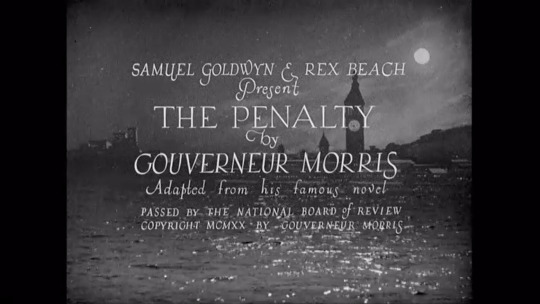
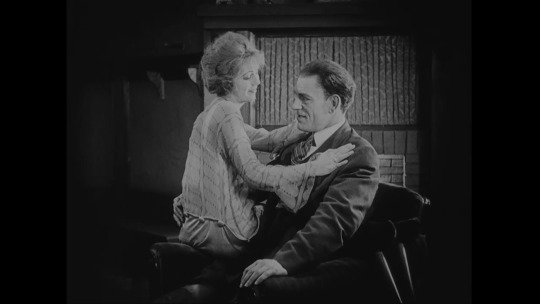


youtube
The Penalty (1920)
My rating: 6/10
I mean, it's over a hundred years old, so obviously not everything holds up, but Chaney's performance is great, and it's a pretty solid thriller throughout.
#The Penalty#Wallace Worsley#Gouverneur Morris#Charles Kenyon#Philip Lonergan#Charles Clary#Doris Pawn#Jim Mason#Youtube
3 notes
·
View notes
Text
Imagine being a whale just doing what whales do in the big wide ocean.
And then someone slaughters you and uses your carcass for oil and whatnot.
AND THEN, some years later, a piece of your bone ends up in Gouverneur Morris’ urinary tract. 😭

4 notes
·
View notes
Text

The story on how this came to be was thanks to Saw
12 notes
·
View notes